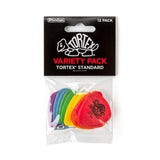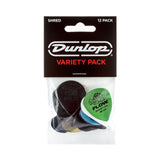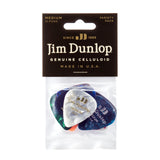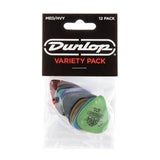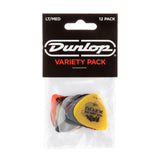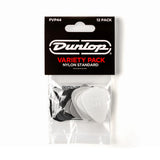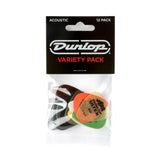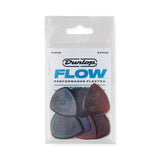Sometimes it feels like the four string aficionados amongst us get overlooked when it comes to guitar gear. Despite being one of the crucial components of music and music creation, the bass guitar is often omitted for its flashier guitar brethren, but that doesn’t mean there aren’t options to improve your bass guitar sounds with the best bass guitar pickups.
Bass guitar pickups are the crucial component in amplifying those low end rumblings, so upgrading the stock pickups on your bass can have a marked effect on the clarity, sustain, and punchiness of your tone. In this article we’re going to pick out some of our personal favourites for you to peruse, covering the whole spectrum from boutique and bourgeois to budget bangers. But before we get to that, a little on the bass itself...
Evolution of the Electric Bass
The bass guitar evolved from the double bass, the largest and lowest-pitched instrument in an orchestra, and like all electrification of traditional instruments, it was the search for volume that led to its development. In the 1930s, Paul Tutmarc developed the first fretted electric bass designed to be played horizontally. He called it a ‘Bass Fiddle’ and it featured a single pickup with a 30 1/2-inch scale length.
It wasn’t until the 1950s that we got the first mass produced electric bass, the now legendary Precision Bass. The original P-Bass had a single pickup, similar to that found on Tele’s of the same era and it wasn’t until the late 50s that we got the now standard split coil design. The P-Bass revolutionised bass guitar for the modern era in a few ways.
First of all, it was incredibly light in comparison to the traditional upright bass, allowing musicians to easily carry it to and from gigs. Secondly, the addition of frets made it much easier for those who could already play the guitar to transition over to bass. Thirdly, it was far less prone to feedback, an issue for electrified double basses of the time, meaning you could crank the volume even further. All of these features, married with the explosion of popularity in rock music in the 60s, led to the surging popularity of the bass, sealing its place in the annals of modern music.
Low End Theory
Okay time for some science! The limit of low end frequency audibility comes in at 20 Hz for most humans. When you amplify this sound with huge systems at high volume, we can identify tones as low as 12 Hz, but once you go further down than that, you’re getting into the realms of feeling. If you’ve been at a gig with huge low end tones like dub, rap and hip hop, and doom and drone styles of rock music you’ll know how this feels.
Anything below 60 Hz on the sound spectrum is considered to be ‘sub-bass’ and a bass guitar’s low E rings out at 41.2 Hz, which is well in the range of sub bass. If you’re rocking a five string then you’re even lower at 30.8 Hz, which is getting close to the limit of human hearing! It’s important to note that when you are playing your bass notes (this applies for guitar as well) you’re not just hearing one frequency. Most of the time there are overtones at various frequencies occurring when you pick your note, which is due to a mix of influences such as string length, where you’ve plucked the string, and how hard you do it.
So why is this important? Well, your bass guitar is pretty much useless without amplification, and if you’re not getting the most out of your amplified sound, you’re potentially missing out on the fundamental frequencies, clarity, punch, and sustain that’s all required for a great bass guitar sound. By upgrading your pickups you are opening avenues of sonic territory hitherto unheard, ensuring clarity in the sub bass range, and power and articulation with those harmonic overtones.
Our Choices
To help you ensure you’re getting the best out of your bass, we’ve gathered together some of our choice picks to help you upgrade your sound. It’s important to note that if you’re playing through a practice amp, then you’re not going to be rumbling any bowels because in the realm of bass guitar, speaker size matters. That said, an upgrade in pickups will always deliver benefits in clarity, punch, and sustain, no matter what amp you’re playing through.
In bass guitar there are two primary forms of pickup configuration, P-Bass and Jazz Bass. We’ve picked out options for both from the biggest brands, to ensure equal choice for players of both of these popular styles of bass guitar.
Seymour Duncan
The Seymour Duncan Vintage P-Bass pickup set is designed to imitate the tone ethos of the classic late 50s Precision Bass pickups. They’ve got plenty of thump and excellent articulation, ensuring you’ll cut through nicely on stage or in a dense mix. Hand ground Alnico 5 rod magnets and a vintage style coil wind ensure a smooth tone, which is a perfect drop in replacement for a vast majority of P-style bass guitars.
The Seymour Duncan Quarter Pound Jazz Bass pickup gets it’s name from the quarter-inch diameter Alnico 5 rod magnets. This pickup gives you a hot output, plenty of attack and a full, even response. It delivers a harmonically complex sound with plenty of overtones for extra richness. The sustain on these pickups is incredible and thanks to the wax potting they are completely squeal free!
Wilkinson
The Wilkinson WPB P-Bass pickup is a budget price pickup that delivers premium tone. Wilkinson are well known for producing excellent quality electronics, and these make a fantastic upgrade for any entry level instrument, and even some in the mid ranges. The sound is warm and well rounded and rings out true, with excellent response to various style of picking and plucking.
The differently styled cousin of the WPB, the Wilkinson WJB does a similar job ensuring greater clarity for your bass notes, offering a significant punchiness upgrade for beginner and mid range bass guitars. The WJB is inexpensive yet a lot hotter than the majority of stock pickups, picking up that sub bass range impressively.
Lollar
Lollar’s Overwound P-Bass pickup is a premium option for serious players. It’s tone is similar to that of a late 50s P-Bass Pickup with enhanced high mids to help you cut through dense stage sound and cluttered mixes. They give you plenty of attack and presence in a variety of playing styles, and the low end frequencies are super defined and clear.
If you’ve got a Jazz Bass then this matched pickup set will take your low end to a whole new level. The Lollar Jazz Bass set is modelled on the original 60s J-Bass pickup, making it perfect for slap, melodic leads, and chordal playing. It’s bright and percussive sound is really quite incredible and the perfect upgrade for J-Basses of all varieties.
Tonerider
If you’re a regular at Northwest Guitars you’ll know how much we love Tonerider, and their TRP1 Precision Plus pickup is a fantastic upgrade for any bassist, minus the Earth shattering costs. It’s hotter than a vintage-style P-Bass pickup, offering excellent tonal variety for a myriad of playing styles and will fit a large range of USA, Mexico, and import P-Bass guitars.
The Tonerider Jazz Plus works fantastically well whether you’re a pick player or you like to pluck and slap. It gives you plenty of low end punch, whilst retaining the clarity and harmonic sharpness you expect of a Jazz Bass guitar. It uses aged magnets to ensure that if you’re using a pick, your tone remains detailed and crisp.
Five String Bass Guitar Pickups
The Lollar LJB-02 is our go to for five string bass players, delivering superior tone that gives plenty of detail on the low B without sounding ‘flubby’. It utilises a RWRP technique for humbucking when you combine the neck with a matched bridge pickup, and features wax potting to ensure no extraneous squeal.
In Conclusion
Despite the lack of talk around the bass guitar, there are plenty of options for you to improve your bass tones. Ensuring clarity in the low end is key to making good music, so upgrading your pickups gives you peace of mind that whether you’re playing live, or tracking in the studio, every note will ring out with definition and articulation.
Check out all our Bass Guitar Pickups.
Learn More
Understand how your bass electronics work with our guide to Capacitors.
If you fancy another science lesson, our Tone Potentiometer Guide is a good place to go!
Our Guitar Setup Guide gets your guitar playing it’s absolute best.

















